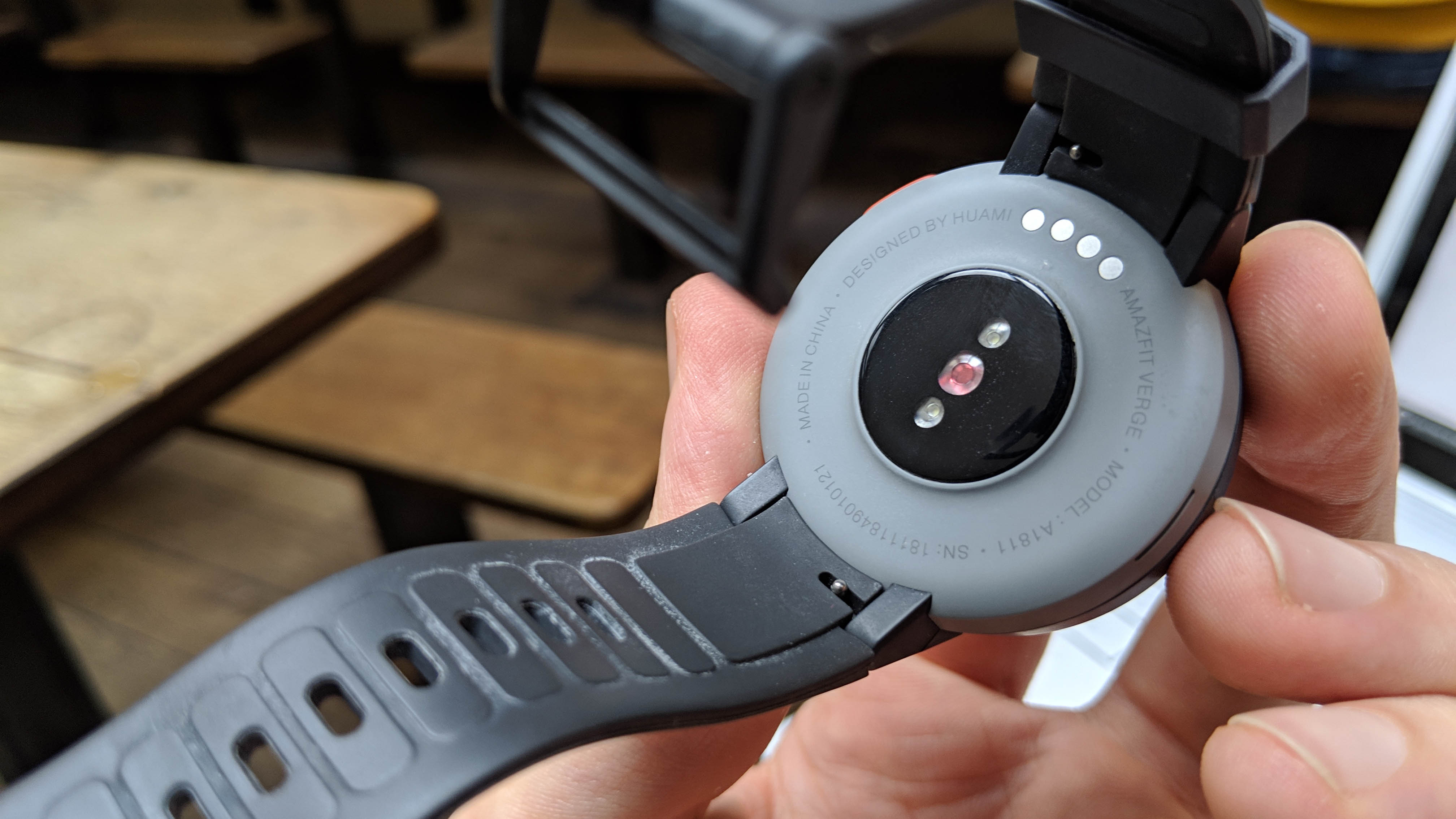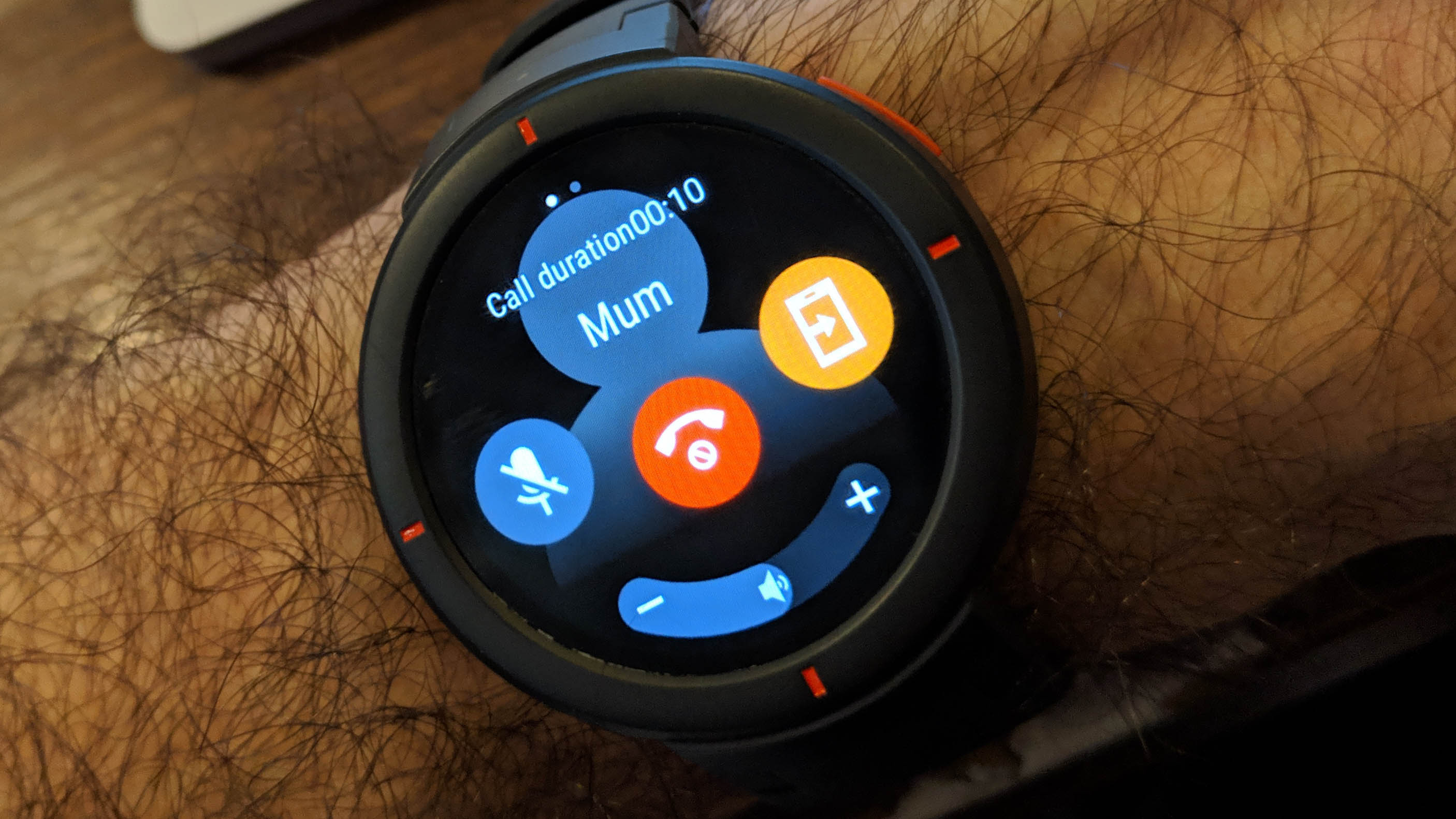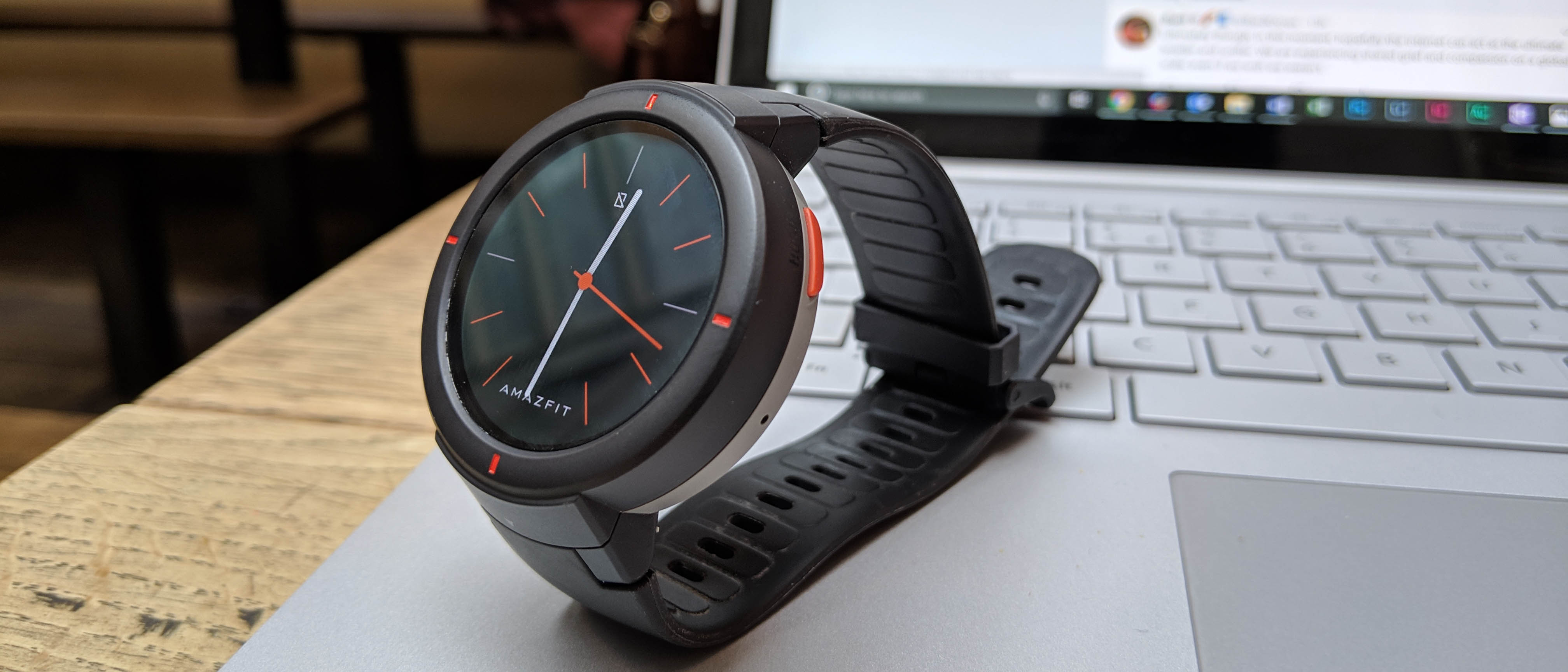Why you can trust TechRadar
Interface
March 2019 update: Version 3.2.0.13
Thank goodness for the latest Amazft Verge software update; while stability wasn’t so much of an issue in the last release of the Amazfit Verge’s OS, firing it up was a very manual process - you had to push the physical button before interacting with the screen.
The latest release, however, adds a double tap the screen to wake feature, making firing it up infinitely more intuitive.
Before we get into that, let’s step back a few paces - Huami’s proprietary smartwatch software powers the Amazfit Verge, and is a seriously mixed bag.
From a pure functionality point of view, it covers the bases, flourishing in a couple of key areas. The illustrations for example throughout the UI are large, finger-friendly and easy to interact with and understand. The interface is also really intuitive - home screen, quick settings, notifications and apps - all accessible by swiping in various directions.
Where the UI falls down is finesse. Occasional UI swipes and double taps go unnoticed, and a lot of translations are patchier than a calico cat, though this has also been improved since we first got the watch. What’s more, there are a few tools missing for exercisers - no seconds counter in the timer app for example.

Fitness tracking
The tracking also is hit and miss. On the one hand, automatic exercise detection is an awesome addition. Mistaking a 25KM train journey for a speedy walk, however, less so.
Sign up for breaking news, reviews, opinion, top tech deals, and more.
When you walk for four minutes, it prompts you to activate tracking mode with a vibration, a feature that can be turned on and off. If you’re actually out and about and walking, the tracking was accurate in our experience with the watch.
Where it falls down is the fact it doesn’t stop tracking when you jump on a train or in a car. There is a feature that can be fired up to stop tracking when it detects you’re stationary though, which is a plus.
The range of exercise modes is also a bit less comprehensive than some of the competition from Apple and Samsung. There’s no rowing mode for example, and more frustrating, in spite of surprisingly accurate indoor running tracking, there’s no gym mode to monitor heart rate when doing things like free weights or circuit training.

This firmly relegates the Amazefit Verge to a singular cardio smartwatch when it comes to sports - with one exception: interval training, thanks to a handy feature within the smartphone app that lets you customize interval training times.
The watch's optical heart rate monitor does an okay job. Mid-training, it can get thrown off, but stationary tracking is more on the money. We found it was on average, about 5-10 beats per minute fast.
Another thing the Verge tracks is sleep, and it does so very well. There are two reasons for this - the Verge is light, and it has great battery life. Coming from the Samsung Gear S3 as our daily timepiece, a more solid, premium, metal smartwatch - one we often took off our wrist in a half daze in the middle of the night due to discomfort - the Verge is comparatively unnoticeable.
In addition, unlike the Gear S3, which has two-day battery life, the up to five-day battery life of the Amazfit Verge meant we didn’t end up charging it overnight, but instead, did so in the day at work, just a bit more often than once a week.
Wearing it for more sleeps meant the sleep tracking data it pulled was more complete, and it also seemed accurate too when used in conjunction with other trackers. A feverish night, it detected just one hour of deep sleep and seven hours of light sleep. A good night’s sleep recorded just under four hours of deep sleep, and four hours of light sleep.
Music and calls
Sadly, music handling feels like a bit of a hack job on the Huami's Amazfit Verge. There are two ways to control your tunes - one is through a widget in the notifications panel, accessible with a swipe down of the UI.
This specifically controls music being played on your phone, and it works with third-party apps like Spotify. Sadly, it delivers a horrifically laggy user experience - press the volume down icon, wait, wait some more and the volume may drop, or it may not - kind of like an unreliable echo.
Then there’s the music app. This controls MP3s you load onto the Verge itself, which may be handy for runners who want to leave their smartphone at home. This works a little better, but we never really used it because we're sold into music streaming services.

Making a call using the Verge as a receiver fares a bit better - and there's only one 'phone' app which is a plus when compared to the two music players. The watch pulled our contacts from our Android phone, which took some time initially, after which they were accessible without any delay. Having said that - good luck if you want to call your mate Zorba or Zain. No search function means finding a contact is a scroll-heavy task.
The Amazfit app
As for the smartphone app available for iOS and Android, it’s simple and effective, giving you insights into your watch stats - battery life, storage capacity etc, while also offering up sleep and sport tracking data, as well as another way to swap the Verge's watch face.
There are no options to install third-party apps, so it’s very much a case of what you get is what you get out of the box.
App basics are covered for the most part though the phone app though - you can select the information displayed across sports modes, which include running, walking, outdoor and indoor cycling, treadmill activity, climbing, tennis, skiing, trail running, soccer and jump rope. It also offers Strava integration too.
Customization also extends to the weather app, alarm controls and up to two optional widgets that can be accessed with a swipe right.
Current page: What's it like to use?
Prev Page Introduction, price and design Next Page Battery and verdict
Basil Kronfli is the Head of content at Make Honey and freelance technology journalist. He is an experienced writer and producer and is skilled in video production, and runs the technology YouTube channel TechEdit.
